Del reviews ‘Violent Night’

Image courtesy of Universal Pictures.
“Violent Night” Starring David Harbour, John Leguizamo, Beverly D’Angelo, Alex Hassell, Alexis Louder and Leah Brady. Directed by Tommy Wirkola. 1 hour, 52 minutes. Rated R. Prime.
Del’s take
You were expecting the David Harbour action-comedy “Violent Night” to be “Die Hard” re-imagined? Think again. “Violent Night” is a strange synthesis of action, comedy and fantasy, as if Disney, The Hallmark Channel and John McClane had combined their energies to create a new telling of “The Night before Christmas,” one fortified with violence, gushy sentimentality and, of course, a stiff slug of eggnog.
“Violent Night” is the story of Santa Claus – yes, THE Santa Claus (David Harbour) – who finds himself bleary-eyed and half-crocked at a London bar on Christmas Eve, besotted with the spirit of Christmas cynicism. And why not? His job as deliverer of gifts to all the good boys and girls of the world no longer has relevance. Children these days, he rants to fellow bar patrons, are nothing more than greedy, bloodthirsty little capitalists who want more, more, and more while giving nothing in return, not even their belief in the jolly old elf.
Meanwhile, the uber-rich Lightstone family has gathered at the family mansion to go through the motions of celebrating Christmas. In reality the event is a chance for selfish daughter Alva (Evi Patterson), her actor boyfriend Morgan Steel (Cam Gigadet) and sulking teenage son Bert (Alexander Elliot) to suck up to hard-drinking, foul-mouthed matriarch Gertrude (Beverly D’Angelo). Son Jason (Alex Hassell), his estranged wife Linda (Alexis Louder) and their daughter Trudy (Leah Brady) linger in the background, the more civilized and less materialistic of the sibling groups. Jason’s priority is making his daughter’s Christmas wish come true – that he and ex-wife Linda get back together so the three of them can once again become a family.
As a hung-over Santa arrives at the family mansion (Do people this wealthy deserve gifts from Santa?) and stumbles about, tossing gifts under the tree and helping himself to expensive brandy, a band of terrorists led by a Mr. Scrooge (John Leguizamo) invades the premises, kills the staff and takes the Lightstone family hostage. Their goal is to make off with the $300 million in government contract dollars the Lightstone family business received for work they never did. The money is hidden in Gertrude’s safe, which is said to be impregnable.

Santa wants nothing to do with this drama and tries to sneak away, but his reindeer are spooked by the gunfire and bolt to parts unknown, stranding Santa. Then he is drawn into the conflict by an accidental encounter with a bad guy, and the mournful pleadings of young Trudy, who shows some evidence of grasping the true meaning of Christmas. That’s enough to transform Santa into a pissed-off fly in the ointment, to borrow an expression from John McClane. When that happens, bloody mayhem ensues.
The violence is jaw-dropping – perhaps “jaw-breaking” is a better description. In one scene, as Santa carries on a soulful conversation with Trudy over a walkie talkie, a recently dispatched bad guy’s face burns to the bone courtesy of the holiday lights he was strangled with. And Santa himself is not immune to having his nose busted, his lip split open and his abdomen gutted. If Santa’s suit wasn’t red enough when the movie opened, it is by the closing credits.
Harbour turns in a solid performance as the jaded, burned-out Santa, and Cam Gigadet is funny as the brainless action movie star Morgan Steel. But it’s difficult to pick out particular actor or role as good or bad, as the creative staff can’t seem to decide what kind of movie it should be. A manic, absurdist comedy? An action movie, in the tradition of “Die Hard” or “The Long Kiss Goodnight”? Or a holiday fantasy about the true meaning of Christmas. The writers, and director Wirkola, appear to want all those things, and in the attempt it becomes none of them.
Ultimately “Violent Night” amounts to nothing more than its title, a violent Yule season encounter, with a nod to Charles Dickens, and Dr. Seuss. It’s not a bad movie per se, but it’s not memorable and will never achieve the cult-like status of a “Die Hard” or “Home Alone.”
I grade “Violent Night” as a B-.
Del Stone Jr. is a former journalist and author.
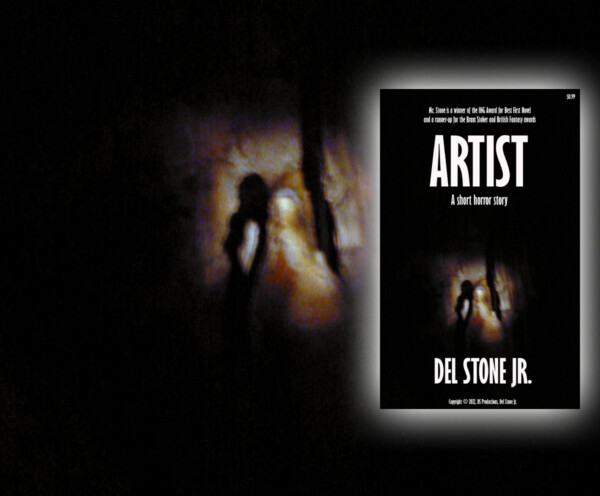
Cover image by Zde by way of a Creative Commons license.
What do I remember about this story? Well, this:
The year was 1982 or thereabouts. I was living with my parents, but things were looking up. I had a career-track job and a steady income. I had lost my baby fat and people were telling me I had become a handsome young man. The future was ripe with possibilities and I was loving life.
That’s what I remember. Oh, and I desperately wanted to become a published writer in the horror genre, another Dennis Etchison or Stephen King. This story constitutes one of my efforts to realize that dream.
“Artist” is an old-school horror tale that belongs to what I call my “ironic” movement. It’s a one-off, worthy of a “Night Gallery” episode but not much else. I didn’t expect to see it enshrined as a horror classic but I hoped it would be published, if not in a paying market then one of the ubiquitous small press magazines. I had recently discovered the Small Press Writers and Artists Organization, and I was paying my dues. SPWAO and the markets they listed were the farm teams of the professional publications, and while I intended to become a professional writer – meaning I would be paid professional rates for my work – I would not turn my nose up at a smaller market.
Alas, “Artist” was never published. I must have sent it to every market I could fine, both in SPWAO and The Writer’s Market. Mostly I received form letter rejections but occasionally an editor would take time to give me a personal response, and always the story was “too this” or “too that.”
Little did I know but the story had been done before. I was rewatching the original “Twilight Zone” series on Netflix and came across an episode that was based on a similar premise. I guess it’s true great minds think alike (insert smirky grin).
“Artist” is not a “deep” story with multiple layers of meaning. It’s about a writer, much like myself, who discovers something terrible while writing a short story. You might recognize the protagonist in this story. He writes his stories longhand, using loose-leaf binder paper held in a clipboard. He lies on his bed while writing, stomach down. I know for a fact that when he finishes the manuscript and gives it a first read-through, he’ll type up a rough draft and edit that version, because the typed version is always somehow different than the handwritten version. It’s a matter of pacing, and certain scenes receiving the “weight” they deserve. After that second read-through he’ll type the final version, make a photocopy at the post office, then start shipping it to the magazines.
Where it will be rejected by all, until technology provides another solution – this solution – and it finally sees the light of print.
(Cover image by Zde by way of a Creative Commons license.)
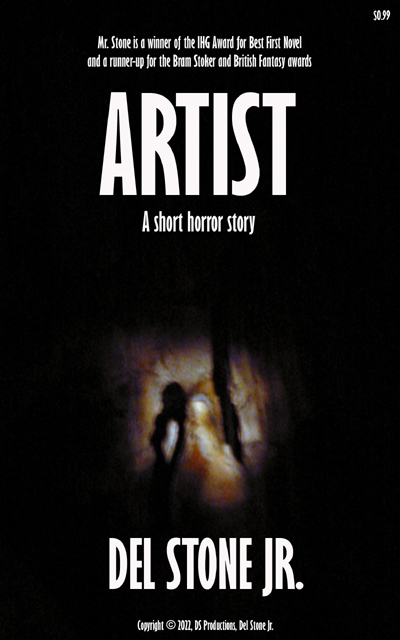
From Amazon:
Revised, updated and enhanced with additional content, “Artist” embodies every horror writer’s nightmare: the possibility that what they are writing might actually become reality.
Stevenson is a struggling horror writer of the old school stripe – he writes by hand on loose-leaf binder paper. It’s a laborious process but it lends an authenticity to his work that Stevenson appreciates …
… until he hears something growling and clawing at the door, something that bears an uncanny resemblance to the antagonist of the story he is currently writing.
A weird solution presents itself to Stevenson, but the question becomes: Can he pull it off in time?
About the author:
Del Stone Jr. is a professional fiction writer. He is known primarily for his work in the contemporary dark fiction field, but has also published science fiction and contemporary fantasy. Stone’s stories, poetry and scripts have appeared in publications such as Amazing Stories, Eldritch Tales, and Bantam-Spectra’s Full Spectrum. His short fiction has been published in The Year’s Best Horror Stories XXII; Alfred Hitchcock’s Mystery Magazine; the Pocket Books anthology More Phobias; the Barnes & Noble anthologies 100 Wicked Little Witch Stories, Horrors! 365 Scary Stories, and 100 Astounding Little Alien Stories; the HWA anthology Psychos; and other short fiction venues, like Blood Muse, Live Without a Net, Zombiesque and Sex Macabre. Stone’s comic book debut was in the Clive Barker series of books, Hellraiser, published by Marvel/Epic and reprinted in The Best of Hellraiser anthology. He has also published stories in Penthouse Comix, and worked with artist Dave Dorman on many projects, including the illustrated novella “Roadkill,” a short story for the Andrew Vachss anthology Underground from Dark Horse, an ashcan titled “December” for Hero Illustrated, and several of Dorman’s Wasted Lands novellas and comics, such as Rail from Image and “The Uninvited.” Stone’s novel, Dead Heat, won the 1996 International Horror Guild’s award for best first novel and was a runner-up for the Bram Stoker Award. Stone has also been a finalist for the IHG award for short fiction, the British Fantasy Award for best novella, and a semifinalist for the Nebula and Writers of the Future awards. His stories have appeared in anthologies that have won the Bram Stoker Award and the World Fantasy Award. Two of his works were optioned for film, the novella “Black Tide” and short story “Crisis Line.”
Stone recently retired after a 41-year career in journalism. He won numerous awards for his work, and in 1986 was named Florida’s best columnist in his circulation division by the Florida Society of Newspaper Editors. In 2001 he received an honorable mention from the National Lesbian and Gay Journalists Association for his essay “When Freedom of Speech Ends” and in 2003 he was voted Best of the Best in the category of columnists by Emerald Coast Magazine. He participated in book signings and awareness campaigns, and was a guest on local television and radio programs.
As an addendum, Stone is single, kills tomatoes and morning glories with ruthless efficiency, once tied the stem of a cocktail cherry in a knot with his tongue, and carries a permanent scar on his chest after having been shot with a paintball gun. He’s in his 60s as of this writing but doesn’t look a day over 94.
Contact Del at [email protected]. He is also on Facebook, twitter, Pinterest, tumblr, TikTok, Ello and Instagram. Visit his website at delstonejr.com .
About this book:
“Artist” is a 2,512-word short story and was written in 1982. It has never been published. Copyright © 2022, Del Stone Jr.
The book’s total length is 4,383 words.
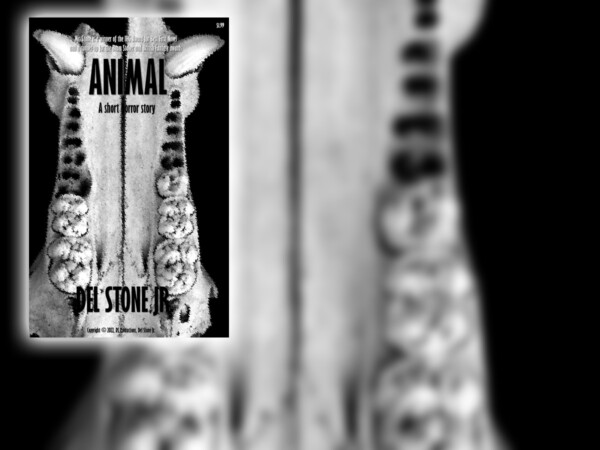
Photo courtesy of ph.
I say this story was written in 1988 but I wouldn’t quote me on that.
It was written in the 1980s, I’m sure. It has the tone of my ’80s fiction – bleak sketches usually set in a rural back road or bar. I worked the night shift at our local newspaper and afterwards, we night-shifters would venture out in search of a cheap watering hole or, if not a bar, a convenience store with cold beer, and off we’d go, into the hinterlands, because it was there a beer-drinker was not likely to be pulled over by the boys with the blue-and-red lights on their cars.
Out there in the rural dark – the real dark folks don’t see these days because cities are too lit up these days – I found a mysterious tint to the world, what Yeats might have called that rosy afterglow of the realm which lies beside this one, visible only to young children who have not had their senses dulled by maturity and experience. Except this glow was of a darker variety, and I wonder if Yeats could have appreciated that, given his musings about the nature of the new messiah.
To me, there were mysteries to be discovered in the unyielding dark of the countryside, mysteries to be glimpsed not articulated but sensed in the way you know to stay out of that abandoned house in the woods, the one that looks something terrible might have happened there years ago, resulting in it being scorned by humanity. Your ability to sense hidden dangers depended on your willingness to believe.
Which is what this story is about.
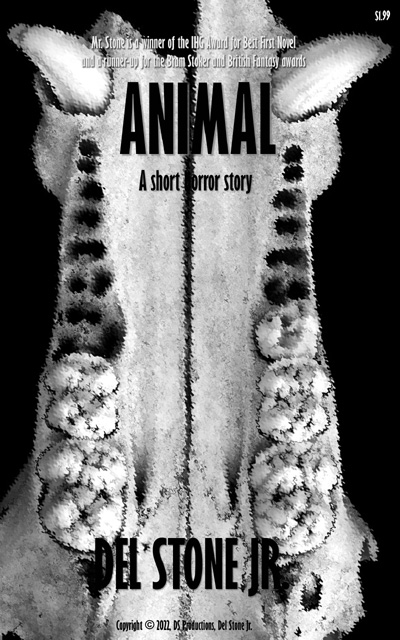
When I was a kid there were mysteries in the world, things we did not understand and places we had not seen. But we wondered about them. There might be jungles and dinosaurs on Venus, or spindly, water-starved creatures struggling to survive on Mars. Who knew what lay in that jungle heart of darkness, or the deep ocean trench? Were flying saucers winging overhead, always when we’d left the camera sitting on the table by the front door?
But as time went by and we learned more, the world began to grow smaller and the mystery fade, replaced with cold facts (or hot facts in the case of Venus, a roasting hell hole of carbon dioxide). Poor Mars became an icy desert with air so thin you could not reasonably call it air. Flying saucers became swamp gas and ocean trenches were filled with nothing but silt and a scattering of weird, glow-in-the-dark shrimp.
Think “Excaliber,” and the world of magic giving way to a world of men.
I liked life better when I didn’t know so much about it, just as I liked my friends better when their thoughts weren’t paraded across a panoply of social media. Didn’t we all get along better before we found out so-and-so voted for that evil bastard Trump?
The lack of knowing every stinking detail about every stinking thing – and the curious imaginings that filled those gaps – made life magically delicious, to borrow a breakfast cereal jingle. And that’s what this story is about, in a darkly roundabout way.
Maybe there’s still a bit of mystery – and magic – left in this world.
Lord, I hope so.
“Animal” is available only on Amazon’s Kindle, but remember: You don’t need a Kindle device to read a Kindle book. Download the free Kindle app to your phone or tablet.
Order a copy of “Animal” by following this link.
(Cover image courtesy of ph.)
From Amazon
Animal: Revised, updated and enhanced with additional content, “Animal” asks the question, “If larks, and katydids, can dream, then can I?”
Billy Stafford would rather be home, in his bed, grabbing a few winks because tomorrow will bring a special challenge at his job and he’ll need his wits about him and. …
And here he is, at Earl’s Tavern and Package Store, listening to Bob Decker go on and on in a drunken stupor about crazy things – monsters in a lake, or Bigfoot, or UFOs. Worse, he’s forcing Billy to get drunk with him, which means tomorrow Billy will wake up with a headachy brain fog and everything will be for s**t.
Across the bar, two men are teasing the lady bartender about something they’ve got in their Jeep, something they shot out in the woods that day, something that nobody has ever seen before. Billy thinks Bob should be talking to them, not him. It’s all a crock of you-know-what and truth be told, Billy just wants to go home and sleep.
He finally disentangles himself from Bob and heads out the door, and the night should have ended there. But it doesn’t.
Because he sees something.
In the Jeep.
About the author:
Del Stone Jr. is a professional fiction writer. He is known primarily for his work in the contemporary dark fiction field, but has also published science fiction and contemporary fantasy. Stone’s stories, poetry and scripts have appeared in publications such as Amazing Stories, Eldritch Tales, and Bantam-Spectra’s Full Spectrum. His short fiction has been published in The Year’s Best Horror Stories XXII; Alfred Hitchcock’s Mystery Magazine; the Pocket Books anthology More Phobias; the Barnes & Noble anthologies 100 Wicked Little Witch Stories, Horrors! 365 Scary Stories, and 100 Astounding Little Alien Stories; the HWA anthology Psychos; and other short fiction venues, like Blood Muse, Live Without a Net, Zombiesque and Sex Macabre. Stone’s comic book debut was in the Clive Barker series of books, Hellraiser, published by Marvel/Epic and reprinted in The Best of Hellraiser anthology. He has also published stories in Penthouse Comix, and worked with artist Dave Dorman on many projects, including the illustrated novella “Roadkill,” a short story for the Andrew Vachss anthology Underground from Dark Horse, an ashcan titled “December” for Hero Illustrated, and several of Dorman’s Wasted Lands novellas and comics, such as Rail from Image and “The Uninvited.” Stone’s novel, Dead Heat, won the 1996 International Horror Guild’s award for best first novel and was a runner-up for the Bram Stoker Award. Stone has also been a finalist for the IHG award for short fiction, the British Fantasy Award for best novella, and a semifinalist for the Nebula and Writers of the Future awards. His stories have appeared in anthologies that have won the Bram Stoker Award and the World Fantasy Award. Two of his works were optioned for film, the novella “Black Tide” and short story “Crisis Line.”
Stone recently retired after a 41-year career in journalism. He won numerous awards for his work, and in 1986 was named Florida’s best columnist in his circulation division by the Florida Society of Newspaper Editors. In 2001 he received an honorable mention from the National Lesbian and Gay Journalists Association for his essay “When Freedom of Speech Ends” and in 2003 he was voted Best of the Best in the category of columnists by Emerald Coast Magazine. He participated in book signings and awareness campaigns, and was a guest on local television and radio programs.
As an addendum, Stone is single, kills tomatoes and morning glories with ruthless efficiency, once tied the stem of a cocktail cherry in a knot with his tongue, and carries a permanent scar on his chest after having been shot with a paintball gun. He’s in his 60s as of this writing but doesn’t look a day over 94.
Contact Del at [email protected]. He is also on Facebook, twitter, Pinterest, tumblr, TikTok, Ello and Instagram. Visit his website at delstonejr.com .
About this book:
“Animal” is a 3,555-word short story and was written in 1988. It has never been published. Copyright © 2022, Del Stone Jr.
The book’s total length is 5,691 words.
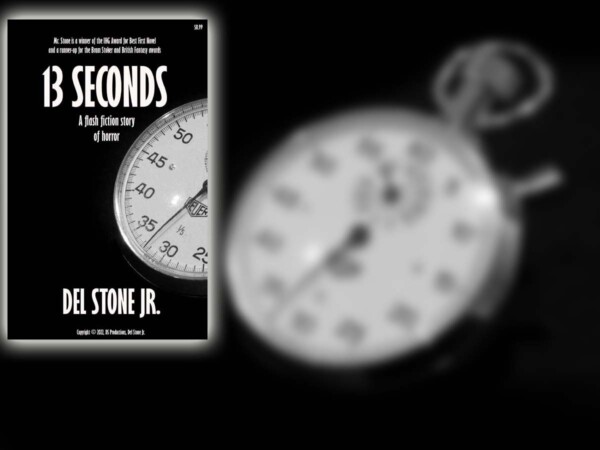
William Warby, flickr
I can say without equivocation I have never shot a pizza guy for being 13 seconds late with a delivery.
I have never shot anyone for any reason.
But I swear to you I have talked on the phone with people who I thought might be capable of drawing a gun from the waistband of their stretchy-waist Lees and aiming it at my face.
In my former job as a newspaperman I took many calls from irate readers, and some of those folks sounded as if they might apply the same corrective strategy – to me! At least once a person threatened to shoot me. I wasn’t worried – people say lots of things but hardly ever do what they say they will. But the boss was sufficiently worried to call the cops, who counseled the person in question. Problem solved.
But in my mind the voice of the furious caller, the person on the other end who was brooding about a perceived slight, lingered afterward and inspired me to write this story, a kind of gestalt for every angry voice I ever listened to over the telephone.
Only one way to respond:
Thank you and have a nice day.
From Amazon:
13 Seconds: Revised, updated and enhanced with additional content, this flash fiction story will make you think twice about ordering out for pizza!
Quiggly is standing by the door, waiting on his pizza. He has a stopwatch.
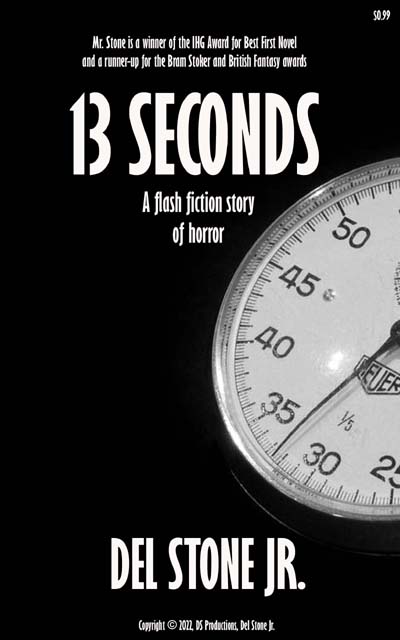
And a gun.
Because the world is for shit anymore. Disposable cars, disposable jobs, even disposable people. Back in Quiggly’s day, things were better. Things were real. Things worked.
But not any more. Nobody cared about quality or service. All people wanted was their damn money, and they didn’t want to work very hard for it either.
They said he’d have his pizza within a certain number of minutes, and the pizza delivery boy was 13 seconds late. Thirteen seconds is 13 seconds, or has time changed too? Quiggly isn’t sure, but he knows one thing:
He’s going to get his pizza for free.
Or else.
(Cover image courtesy of William Warby of Flickr under the auspices of a Creative Commons license.)
About the author:
Del Stone Jr. is a professional fiction writer. He is known primarily for his work in the contemporary dark fiction field, but has also published science fiction and contemporary fantasy. Stone’s stories, poetry and scripts have appeared in publications such as Amazing Stories, Eldritch Tales, and Bantam-Spectra’s Full Spectrum. His short fiction has been published in The Year’s Best Horror Stories XXII; Alfred Hitchcock’s Mystery Magazine; the Pocket Books anthology More Phobias; the Barnes & Noble anthologies 100 Wicked Little Witch Stories, Horrors! 365 Scary Stories, and 100 Astounding Little Alien Stories; the HWA anthology Psychos; and other short fiction venues, like Blood Muse, Live Without a Net, Zombiesque and Sex Macabre. Stone’s comic book debut was in the Clive Barker series of books, Hellraiser, published by Marvel/Epic and reprinted in The Best of Hellraiser anthology. He has also published stories in Penthouse Comix, and worked with artist Dave Dorman on many projects, including the illustrated novella “Roadkill,” a short story for the Andrew Vachss anthology Underground from Dark Horse, an ashcan titled “December” for Hero Illustrated, and several of Dorman’s Wasted Lands novellas and comics, such as Rail from Image and “The Uninvited.” Stone’s novel, Dead Heat, won the 1996 International Horror Guild’s award for best first novel and was a runner-up for the Bram Stoker Award. Stone has also been a finalist for the IHG award for short fiction, the British Fantasy Award for best novella, and a semifinalist for the Nebula and Writers of the Future awards. His stories have appeared in anthologies that have won the Bram Stoker Award and the World Fantasy Award. Two of his works were optioned for film, the novella “Black Tide” and short story “Crisis Line.”
Stone recently retired after a 41-year career in journalism. He won numerous awards for his work, and in 1986 was named Florida’s best columnist in his circulation division by the Florida Society of Newspaper Editors. In 2001 he received an honorable mention from the National Lesbian and Gay Journalists Association for his essay “When Freedom of Speech Ends” and in 2003 he was voted Best of the Best in the category of columnists by Emerald Coast Magazine. He participated in book signings and awareness campaigns, and was a guest on local television and radio programs.
As an addendum, Stone is single, kills tomatoes and morning glories with ruthless efficiency, once tied the stem of a cocktail cherry in a knot with his tongue, and carries a permanent scar on his chest after having been shot with a paintball gun. He’s in his 60s as of this writing but doesn’t look a day over 94.
Contact Del at [email protected]. He is also on Facebook, twitter, Pinterest, tumblr, TikTok, Ello and Instagram. Visit his website at delstonejr.com .
About this book:
“13 Seconds” is a 701-word short story. It was originally published in “Horrors! 365 Scary Stories,” 1998, Barnes & Noble.
The book’s total length is 2,498 words.

Image courtesy of pxfuel by way of a Creative Commons license.
Remember when you were younger and your phone would ring and it would be your best friend and he’d say, “What are you doing?” and you’d say, “I’ve got this to do and this and this,” and he’d say “No you don’t. I’ll be there in 5 minutes.” And he’d show up and you’d get into his car and off you’d go and be gone all day and half the night, and you’d do this thing and this thing and this thing, and some of those things were wonderful and some of them were terrifying and when you got home later that night, every muscle in your body was aching, and you were tired, and maybe you were a little sunburned, and maybe you were a little drunk. …
But you would know that this had been the best day of your life.
Yeah.
I remember.
About the author:
Del Stone Jr. is a professional fiction writer. He is known primarily for his work in the contemporary dark fiction field, but has also published science fiction and contemporary fantasy. Stone’s stories, poetry and scripts have appeared in publications such as Amazing Stories, Eldritch Tales, and Bantam-Spectra’s Full Spectrum. His short fiction has been published in The Year’s Best Horror Stories XXII; Alfred Hitchcock’s Mystery Magazine; the Pocket Books anthology More Phobias; the Barnes & Noble anthologies 100 Wicked Little Witch Stories, Horrors! 365 Scary Stories, and 100 Astounding Little Alien Stories; the HWA anthology Psychos; and other short fiction venues, like Blood Muse, Live Without a Net, Zombiesque and Sex Macabre. Stone’s comic book debut was in the Clive Barker series of books, Hellraiser, published by Marvel/Epic and reprinted in The Best of Hellraiser anthology. He has also published stories in Penthouse Comix, and worked with artist Dave Dorman on many projects, including the illustrated novella “Roadkill,” a short story for the Andrew Vachss anthology Underground from Dark Horse, an ashcan titled “December” for Hero Illustrated, and several of Dorman’s Wasted Lands novellas and comics, such as Rail from Image and “The Uninvited.” Stone’s novel, Dead Heat, won the 1996 International Horror Guild’s award for best first novel and was a runner-up for the Bram Stoker Award. Stone has also been a finalist for the IHG award for short fiction, the British Fantasy Award for best novella, and a semifinalist for the Nebula and Writers of the Future awards. His stories have appeared in anthologies that have won the Bram Stoker Award and the World Fantasy Award. Two of his works were optioned for film, the novella “Black Tide” and short story “Crisis Line.”
Stone recently retired after a 41-year career in journalism. He won numerous awards for his work, and in 1986 was named Florida’s best columnist in his circulation division by the Florida Society of Newspaper Editors. In 2001 he received an honorable mention from the National Lesbian and Gay Journalists Association for his essay “When Freedom of Speech Ends” and in 2003 he was voted Best of the Best in the category of columnists by Emerald Coast Magazine. He participated in book signings and awareness campaigns, and was a guest on local television and radio programs.
As an addendum, Stone is single, kills tomatoes and morning glories with ruthless efficiency, once tied the stem of a cocktail cherry in a knot with his tongue, and carries a permanent scar on his chest after having been shot with a paintball gun. He’s in his 60s as of this writing but doesn’t look a day over 94.
Contact Del at [email protected]. He is also on Facebook, twitter, Pinterest, tumblr, TikTok, Ello and Instagram. Visit his website at delstonejr.com .
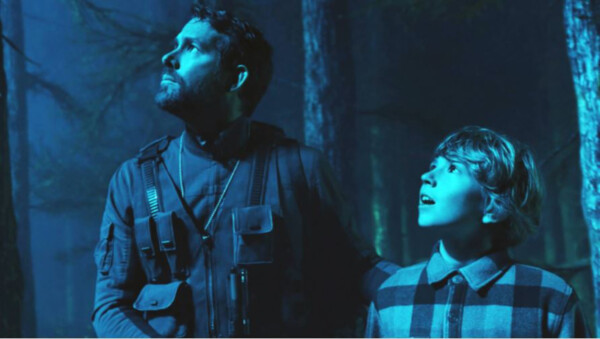
Image courtesy of Netflix.
“The Adam Project” Starring Ryan Reynolds, Walker Scobell, Zoe Saldana, Jennifer Garner and Mark Ruffalo. Directed by Shawn Levy. 1 hour, 46 minutes. Rated PG-13. Netflix.
Del’s take
“The Adam Project” is a perfectly calibrated popcorn flick that pushes all the right buttons. It features a precocious young actor who does not fear the camera, a leading man who can laugh at himself, a leading woman who is tough as the proverbial nails, and a villain as despicable as people who vote a straight party ticket.
In fact, the whole contraption is so finely tuned and calculated that I found myself missing the pop and fizz of 45-rpm vinyl, which is to say it’s a little too polished for my tastes. Oh, it’s a terrific movie and you’ll like it a lot. But the next day you’ll struggle to remember much about it except that you probably should have sprung for a Diet Pepsi to wash down the popcorn.
The story is about the titular Adam (Ryan Reynolds), who steals a spacecraft and wormholes into the past to prevent a tragedy. Unfortunately he overshoots his destination and arrives at the location and time of his 12-year-old self (Walker Scobell), whom he enlists in trying to save the future. In the process Adam bucks up his long-suffering mom (Jennifer Garner), revisits his dad (Mark Ruffalo) and reunites with his future wife (Zoe Saldana), all while thwarting the evil machinations of his former boss, Maya Sorian (Catherine Keener).
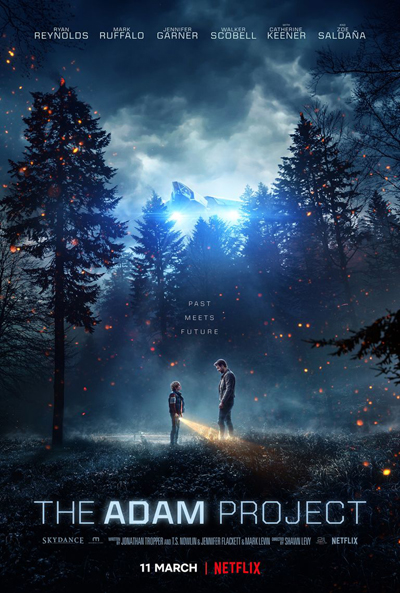
What follows is a thrill-park ride of battling robots right out of “Lost in Space,” dodging anachronisms and revisiting the good old days, none of it very demanding of deeply embedded cognitive skills. And you know what? That’s OK. Sometimes a movie is meant to do nothing more than entertain and “The Adam Project” does that and does it well, like successfully parallel parking an Edsel.
Reynolds is perfection as the wisecracking, flummoxed-when-he-should-be Adam, but more impressive is young Scobell, who matches Reynolds snark for snark and even looks like Reynolds, maybe if you squint. Garner is effective as the suffering mom, and Ruffalo is pretty funny in his role as the absent father who must re-learn his priorities if young Adam is to avoid the awful fate of growing up to become old Adam. Less effective, I thought, was Saldana as Adam’s future wife, Laura, who seems perpetually pissed-off. I mean, the fate of the world hangs in the balance and everybody’s trading witty remarks except ol’ buzz kill Laura, who just wants to stab things.
As a story “The Adam Project” keeps its focus on the action, not the novelty of time travel. “Peggy Sue Got Married” and “Back to the Future” both staked their claim on nostalgia – cars with tail fins, ’50s music and fond memories of the people who created and financed those movies. But in “Adam” nostalgia remains a sideshow to the primary conflict between Adam and Maya, and Adam’s desire to reconnect with his wife. It’s nice to see Mom and Dad getting along.
Predictably the movie has received high marks from the public. It’s one of those stories that requires nothing more of its audience than an hour and 46 minutes of their time, a big tub of buttered popcorn and maybe a healthy tolerance of the absurd. Nothing wrong with any of those things, except maybe the popcorn. Pop a Zantac and you’ll be fine.
As I watched it, however, I felt like I was taking a ride through a Universal Studios attraction, where every twist, turn and visual is calculated just so by mountains of data, algorithms and public feedback. Can you complain about a movie being too perfect? Maybe I should just shut my mouth.
I’m giving “The Adam Project” a B+. It’s funny, entertaining, and every now and again touches the heart. It’s a Diet Pepsi in lieu of champagne.
But then, who drinks champagne with popcorn?
Del Stone Jr. is a former journalist and writer.
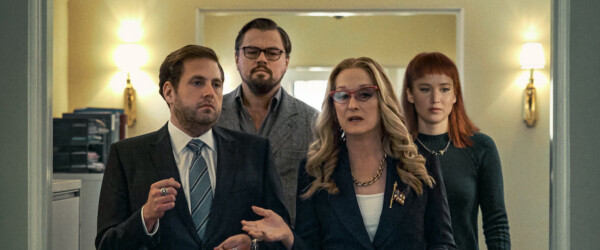
Image courtesy of Netflix.
“Don’t Look Up” Starring Leonardo DiCaprio, Jennifer Lawrence, Meryl Streep, Cate Blanchett, Rob Morgan, Jonah Hill, Mark Rylance, Tyler Perry, Timothee Chalamet, Ron Pearlman, Ariana Grande, Kid Cudi and others. Directed by Adam McKay. Two hours, 18 minutes. Rated R. Netflix.
Del’s take
An existential threat is hurtling our way and what does the president of the United States want to do?
“Sit tight and assess,” decides President Orlean (Meryl Streep), who fears an approaching apocalypse might cost her party the midterm elections.
That’s the message of “Don’t Look Up,” a hilarious yet stinging denunciation of many things – our leadership’s response to the climate change crisis, the empty-headedness of American culture, the corrosive influence of social media and metrics, and the dehumanizing fist of runaway capitalism. It is the new “Idiocracy” and it arrives just in time to skewer all the people who deserve a sharp stick in the eye.
The story is about a milquetoast, Walter Mitty-style astronomer (Leonardo DiCaprio as Professor Randall Mindy) and his edgy PhD candidate assistant (Jennifer Lawrence as Kate Dibiasky) who discover a planet-killing comet that will smack Earth in six months. They discreetly sound the alarm only to discover the authorities, who don’t understand the science and don’t care, will not respond to the crisis unless it serves their interests. So Mindy and Dibiasky whistleblow the story to the media, where it lands with an apathetic thud. Most people are more invested in the breakup of two popular singers, Riley Bina (Ariana Grande) and DJ Chello (Kid Cudi). As doom becomes an undeniable reality the government staggers into action by entrusting the fate of the planet to a whackjob Elon Musk-style billionaire (Mark Rylance as Peter Isherwell), who wants to break up the comet into smaller pieces and let them collide with the Earth so the fragments can be mined – by his telecommunications company, Bash – for precious metals crucial to the manufacture of smart phones. All that’s left is negotiating with the countries to be annihilated over how much money they want for their dead.

“Don’t Look Up” offers more Oscar-fueled star power than a map of the Milky Way, and many of the performances are better than strong. DiCaprio as hapless Dr. Mindy channels a furious Howard Beale (Peter Finch in “Network”) when he finally revolts against the frustrating ennui of 21st century America, while Jennifer Lawrence effectively portrays the optimism of youth as it dashed against the rocks of the corrupt, self-serving inertia that serves as leadership these days. Meryl Streep evokes a dumb-as-a-box-of-rocks, Donald Trump-style president whose only strong suit is a kind of animal cunning, while Cate Blanchett, as the glib yet shallow peroxide blonde who leads Dr. Mindy astray and then abandons him when he becomes a liability, perfectly portrays the fickleness of American media.
A few other performances worth mentioning: Ariana Grande is a hilarious Riley Bina, as is Mark Rylance as Isherwell, which I suspect is a composite of Musk and Steve Jobs. And Jonah Hill as the juvenile White House chief of staff (and Orlean’s son) makes you want to reach through the screen and slap him. The one performance that left me cold was Timothee Chalamet’s Yule, though at one point he offers a prayer for the ages.
“Don’t Look Up” has gotten mixed reviews. Nick Allen of RogerEbert.com calls it “McKay’s worst film yet” while Charles Bramesco of The Guardian dismisses it as a “disaster.” The New York Times and CNN were more merciful. The complaint centers around the jokes and caricatures, which they say are lowbrow. I would argue that in an age where attention spans near a half-life of a nanosecond, the lack of “razor-sharp wit” is as much commentary as the jokes and characters themselves.
I enjoyed the hell out of “Don’t Look Up” and I thought it communicated exactly what the “Let’s Go Brandon” crowd needs to hear – that they’re a bunch of fucking idiots who are screwing up the country and the planet with their selfish ignorance. The fact that this message was delivered with a hammer, not a scalpel, is a strike in the movie’s favor. Do you seriously think people who believe vaccines are evil and Donald Trump is still the president would notice or respond to “razor sharp wit”? Give me a break.
Isherwell brags that his algorithms are so good they can predict when and how President Orlean will die. She will be eaten by a “bronteroc.”
I won’t tell you what that means. To find out you must watch past the credits. But it’s pretty damned funny.
Meanwhile, check out “Don’t Look Up.” Pay no heed to the critics – it’s funny as hell and I think you’ll enjoy it, unless you’re one of the people being skewered. And who knows? If you have a sense of humor, you too might get a laugh.
I rate it a solid A.
Del Stone Jr. is a former journalist and writer.

[ Cover image by Del Stone Jr. ]
In 1993 I decided I needed a dose of furry companionship. I went to the animal shelter and picked out a cat. A black cat. I named him Pavlov. Get it?
Moving on, that first night, when I came home from work, Pavlov came tumbling down the stairs to see who had arrived to entertain him. He had been at the house alone after my friend Lurene dropped him off. She had picked him up from the vet where his, er, equipment had been snipped off.
One thing about Pavlov I noticed immediately – he sure was noisy. I believe cat people use the term “vocal.” I would use the term “pain in the ass,” because after five minutes of meowing I was having serious second thoughts about my new status as cat daddy.
My friends Mike and Gerdy had another idea. “Why not get another kitty to keep him company? Two cats are no more trouble than one.” Knowing what I know now, I’d love to go back in time and argue that point. Two cats are no more trouble than one? Maybe in some parallel universe, but not this one.
But that seemed a logical solution, so a couple of days later I was back at the animal shelter adopting a tail-less tabby kitty I named Magpie, or Maggie for short.
The plan worked. Maggie kept Pavlov company and I regained my wits. While Pavlov veered off into some weird, Lovecraftian territory of evil and revenge – he once crapped on the floor after I yelled at him, and he shredded the shower curtain and destroyed the toilet paper in return for another scolding – Maggie became the love of my life. She was the most innocent kitty to walk the earth, and she loved me. My lap was hers, and she would fight Pavlov for it.
It was Pavlov and Maggie who became the inspiration for the following story, “Aunt Edna’s Cats.”
This piece began its life as a column that ran too long, so I decided to rewrite it into a slightly longer piece and sell it to a magazine for cat aficionados. It was considered by many and one national publication almost bought it, but then bailed at the last moment.
Then when day I spotted a reference to a Barnes & Noble anthology called “Crafty Cat Crimes” edited by Stefan Dziemianowicz, Robert Weinberg and Martin Geenberg. It was a collection of stories about cats and their roles in mysteries.
I loved those Barnes & Noble anthologies, not just because they bought my stories but they paid so reliably and well. The editors were obliging, provided good feedback and conducted themselves professionally. I received royalty payments for those stories for many years.
I modified my column and shipped it off to Stefan, who got back to me with suggestions about how to improve it. I followed his advice, resubmitted it and voila! It was accepted.
I’m glad Pavlov and Maggie were “immortalized” in a short story that saw print. They were good kitties and deserve to be remembered. Maggie crossed the Rainbow Bridge in 2005, and Pavlov in 2009. I’m sure the people who live in the townhouse I rented are still finding kitty toenails and litter in all the corners.
If you have a cat, give it a hug for me. Maybe one day I will again feel the warm presence of a kitty in my lap and hear the sound of a purr monster warming up.
If you’d like to order a copy of “Aunt Edna’s Cats,” follow this link. And remember, you don’t need a Kindle device to read a Kindle book. Simply download the free Kindle app to your phone or table.
(Cover image courtesy of Del Stone Jr.)

From Amazon
Dotty old Aunt Edna has left her kitties with her nephew while she goes off on some damn-fool adventure, like searching for D.B. Cooper’s ill-gotten stash of cash, or tracking down the hidden location of Shangri-la.
She chose her nephew because he’s reliable, a stay-at-home who is averse to anything that might disrupt his carefully choreographed schedule for life.
Cats, by nature, don’t follow any schedule and in no time the nephew’s daily routine has fallen to kitty-shredded bits.
But when they start bringing him certain kinds of gifts, as cats are wont to do, the nephew begins to suspect batty old Aunt Edna had a larger purpose in mind when she asked him to take care of her beloved furbabies. And maybe, just maybe, his life might become a lot more interesting if he just took the hint.
“Aunt Edna’s Cats” is a story that all cat lovers will instantly understand and appreciate, but it’s more than that. If you have ever felt a little too settled in your day-to-day existence, maybe you should consider a visit to the local animal shelter, where a new life awaits, that of a cat mommy or daddy.
About the author:
Del Stone Jr. is a professional fiction writer. He is known primarily for his work in the contemporary dark fiction field, but has also published science fiction and contemporary fantasy. Stone’s stories, poetry and scripts have appeared in publications such as Amazing Stories, Eldritch Tales, and Bantam-Spectra’s Full Spectrum. His short fiction has been published in The Year’s Best Horror Stories XXII; Alfred Hitchcock’s Mystery Magazine; the Pocket Books anthology More Phobias; the Barnes & Noble anthologies 100 Wicked Little Witch Stories, Horrors! 365 Scary Stories, and 100 Astounding Little Alien Stories; the HWA anthology Psychos; and other short fiction venues, like Blood Muse, Live Without a Net, Zombiesque and Sex Macabre. Stone’s comic book debut was in the Clive Barker series of books, Hellraiser, published by Marvel/Epic and reprinted in The Best of Hellraiser anthology. He has also published stories in Penthouse Comix, and worked with artist Dave Dorman on many projects, including the illustrated novella “Roadkill,” a short story for the Andrew Vachss anthology Underground from Dark Horse, an ashcan titled “December” for Hero Illustrated, and several of Dorman’s Wasted Lands novellas and comics, such as Rail from Image and “The Uninvited.” Stone’s novel, Dead Heat, won the 1996 International Horror Guild’s award for best first novel and was a runner-up for the Bram Stoker Award. Stone has also been a finalist for the IHG award for short fiction, the British Fantasy Award for best novella, and a semifinalist for the Nebula and Writers of the Future awards. His stories have appeared in anthologies that have won the Bram Stoker Award and the World Fantasy Award. Two of his works were optioned for film, the novella “Black Tide” and short story “Crisis Line.”
Stone recently retired after a 41-year career in journalism. He won numerous awards for his work, and in 1986 was named Florida’s best columnist in his circulation division by the Florida Society of Newspaper Editors. In 2001 he received an honorable mention from the National Lesbian and Gay Journalists Association for his essay “When Freedom of Speech Ends” and in 2003 he was voted Best of the Best in the category of columnists by Emerald Coast Magazine. He participated in book signings and awareness campaigns, and was a guest on local television and radio programs.
As an addendum, Stone is single, kills tomatoes and morning glories with ruthless efficiency, once tied the stem of a cocktail cherry in a knot with his tongue, and carries a permanent scar on his chest after having been shot with a paintball gun. He’s in his 60s as of this writing but doesn’t look a day over 94.
Contact Del at [email protected]. He is also on Facebook, twitter, Pinterest, tumblr, TikTok, Ello and Instagram. Visit his website at delstonejr.com .
About this book:
“Aunt Edna’s Cats” is a 2,055-word contemporary fantasy short story.
The book’s total length is 4,830 words.
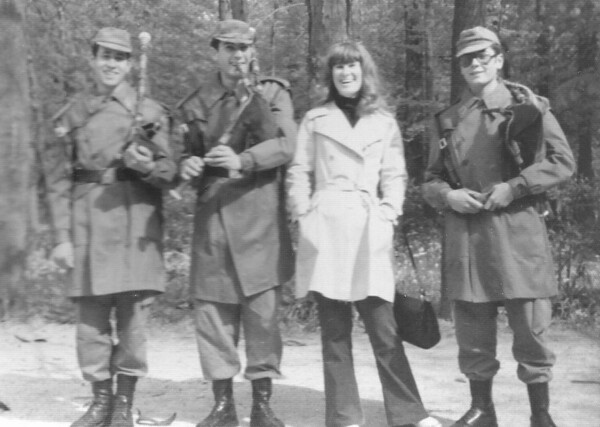
Judi Baller-Fabian poses with members of the Guardia Seville at Retiro Park in Madrid, Spain, in this photo taken during a vacation trip in the late 1970s.Judi Baller-Fabian poses with members of the Guardia Seville at Retiro Park in Madrid, Spain, in this photo taken during a vacation trip in the late 1970s.
Mom’s friend Judi was killed in a hit-and-run the other day, and I didn’t know what to say to Mom, or even if I should say anything at all. I guess I was still in shock myself.
She had known Judi since the early 1960s. Dad, who was active duty Air Force, had just been transferred to Torrejon Air Base outside Madrid. We flew to Spain on an ancient C-124 Globemaster, a four-engined, propeller-driven behemoth with a top speed of 350 mph. Needless to say it took us all day and night, with a refueling stop in the Azores, and half the following day to reach Torrejon.
We settled into our quarters at an American enclave called Royal Oaks and began making friends with some of our neighbors including Judi and her husband, Paul, who lived across the ditch that separated our quad from theirs.
What I remember of Judi is that she had a quick wit, was always cracking off-color jokes, and owned a Skye Terrier named Marky. Years later, when we got our own first dog, an English Springer Spaniel, we named her Marky in honor of Judi’s pup.
She and Mom became fast friends and spent much time together. They had a similar sense of humor. One of their shared jokes was the “blinking red eye of Royal Oaks,” a flashing red light on a nearby radio tower. To their imaginative eyes – perhaps with the help of a few Aguilas, the local beer – that light became the blinking eye of a tall creature that only came out at night.
We left Spain in 1963 and from what Judi told us later, it was a sad day for her. She felt all alone in a foreign country that did not particularly like Americans.
They kept in touch over the years, and even started a new tradition: Every Halloween they would exchange cards and joke about the blinking red eye of Royal Oaks.
Judi later became an author. “The Officer’s House” is the story of two women who fall in love with the same man. She paid Mom the ultimate compliment by creating a character based on her for the book. Mom still has her copy and I think that’s pretty cool. How many people can say they were the inspiration for a book character?
The news that Judi had been killed arrived via Facebook. She and I had been friends there, and she had befriended one of my Facebook friends. It was she who had tried to contact Judi and had not gotten a response. After a couple of days she began searching and found news articles about Judi’s death – apparently she had been trying to cross a busy street and was struck by a car. The driver fled but was later apprehended. He has yet to stand trial, but no punishment will ever make up for the fact that Judi is dead.
I didn’t want to tell Mom because the news of Judi’s death would bring another blow in a constant stream of blows. Her parents were gone, most of her siblings were gone and many of her nieces and nephews had died. Her friends had dwindled to a cherished few. It seemed the longer she lived, the longer death’s shadow reached over her. And now, with Judi’s violent end, it had edged a bit closer.
I considered that old aphorism, the one about sleeping dogs and how they should not be disturbed if you don’t have to disturb them. Next Halloween I could buy a card, put Judi’s name on it and mail it to Mom. With luck she wouldn’t notice the Pensacola postmark.
But the more I thought about it, the more I came to believe that despite the pain, Mom would want to know. Old friends are not like old soldiers; they don’t just fade away. Eventually Mom would wonder, and find answers to her questions, and somehow know I had kept the news from her. Moms figure out those things.
So on a chilly, rainy morning about three days after Judi’s death, I told her.
She seemed to take the news as well as could be expected. She was sad, of course, but when you live to be Mom’s age, sadness is part and parcel to the experience. She noted that Judi’s death placed her in the company of all of Mom’s other friends, who had also passed away.
While we all wish for a long and healthy life, it places us in the unenviable position of seeing the world from a decades-long perspective and noticing that everyone we have known and everything we thought was important has departed from this world, and with each day we become a little more alone. The opportunities to make new friends, find new love and enjoy new experiences become fewer and fewer, until a kind of entropy sets in and we become nothing but nostalgic for the good old days, when we could walk and talk and laugh.
I try to get Mom out of the house every day, and I try to get her to try new things. Sometimes I succeed but the weight of the decades is awfully heavy and most of the time Mom is content to coast along on the inertia life has given her.
She will remember Judi as her crazy Jewish friend from Torrejon who wrote novels and sent her Halloween cards each year. And that little bit of the world will one day pass.
But not unnoticed. Not if you have read this to the end.
—
Del Stone Jr. is a professional fiction writer. He is known primarily for his work in the contemporary dark fiction field, but has also published science fiction and contemporary fantasy. Stone’s stories, poetry and scripts have appeared in publications such as Amazing Stories, Eldritch Tales, and Bantam-Spectra’s Full Spectrum. His short fiction has been published in The Year’s Best Horror Stories XXII; Alfred Hitchcock’s Mystery Magazine; the Pocket Books anthology More Phobias; the Barnes & Noble anthologies 100 Wicked Little Witch Stories, Horrors! 365 Scary Stories, and 100 Astounding Little Alien Stories; the HWA anthology Psychos; and other short fiction venues, like Blood Muse, Live Without a Net, Zombiesque and Sex Macabre. Stone’s comic book debut was in the Clive Barker series of books, Hellraiser, published by Marvel/Epic and reprinted in The Best of Hellraiser anthology. He has also published stories in Penthouse Comix, and worked with artist Dave Dorman on many projects, including the illustrated novella “Roadkill,” a short story for the Andrew Vachss anthology Underground from Dark Horse, an ashcan titled “December” for Hero Illustrated, and several of Dorman’s Wasted Lands novellas and comics, such as Rail from Image and “The Uninvited.” Stone’s novel, Dead Heat, won the 1996 International Horror Guild’s award for best first novel and was a runner-up for the Bram Stoker Award. Stone has also been a finalist for the IHG award for short fiction, the British Fantasy Award for best novella, and a semifinalist for the Nebula and Writers of the Future awards. His stories have appeared in anthologies that have won the Bram Stoker Award and the World Fantasy Award. Two of his works were optioned for film, the novella “Black Tide” and short story “Crisis Line.”
Stone recently retired after a 41-year career in journalism. He won numerous awards for his work, and in 1986 was named Florida’s best columnist in his circulation division by the Florida Society of Newspaper Editors. In 2001 he received an honorable mention from the National Lesbian and Gay Journalists Association for his essay “When Freedom of Speech Ends” and in 2003 he was voted Best of the Best in the category of columnists by Emerald Coast Magazine. He participated in book signings and awareness campaigns, and was a guest on local television and radio programs.
As an addendum, Stone is single, kills tomatoes and morning glories with ruthless efficiency, once tied the stem of a cocktail cherry in a knot with his tongue, and carries a permanent scar on his chest after having been shot with a paintball gun. He’s in his 60s as of this writing but doesn’t look a day over 94.
Contact Del at [email protected]. He is also on Facebook, twitter, Pinterest, tumblr, TikTok, Ello and Instagram. Visit his website at delstonejr.com .

Michael Foran of Flickr via Creative Commons license. https://www.flickr.com/photos/pixorama/
This is what I remember of that awful September 11 morning in 2001.
The air was cool, crisp and clear, which was unusual for a September morning in the Florida Panhandle.
The newsroom was empty except for Ralph Routon and Brenda Shoffner, who were staring at a wall-mounted TV in the corner.
I didn’t believe Ralph when he told me a commercial airliner had crashed into the World Trade Center. I didn’t believe him when he said it was intentional. No American pilot would do such a thing, I said.
I didn’t know the first plane had hit. I didn’t know the second plane had hit until I saw it on the little TV sitting on the file cabinet in the Art Department. Then, I knew we were under attack.
I remember bulletin after bulletin coming over the Advisory wire from The Associated Press. One I remember distinctly – it said the sound of explosions and gunfire were reported from the Capitol building.
I began making a list of stories we would need to do. It was not my place but I did it anyway because I thought it needed to be done. An hour later I threw it out. Things were changing that fast.
The phone was ringing off the hook. People were calling in a state of panic.
Almost instantly, American flags appeared everywhere. Ribbons on car antennas. Lapel pins. Buttons.
I called Mom. My nephew Michael was visiting her. I said something like, “Did you see what those bastards did?” Yes, she had seen the news. Like me, she couldn’t believe it.
People teared up as fighter jets roared overhead.
The newsroom was busier than I had ever seen it. So many people, so much noise. Lots of yelling. Telephones ringing. TVs blaring.
The decision was made to lead the front page with a photo of New Yorkers running from the dust cloud of the collapsing World Trade Center. I remember strongly disagreeing with that choice. I thought it should have been one of the buildings exploding, but at that time I was editing the features sections and did not have a say.
I went home and watched it on TV. I remember becoming sick to my stomach. I called my friend Debbie Lord and we talked about it. I just needed to hear a voice.
Finally, I couldn’t stand it anymore. I turned the channel to HGTV and watched something about remodeling a house. Years later I would do the same when Hurricane Ivan was threatening.
In the days that followed, more shocks would be forced upon us – anthrax in the mail, a plane out of New York City going down. It all seemed unreal and it was too much to digest – the worry, the fear.
But there was some good that emerged from the tragedy. Americans united as I had never seen in all my life.
One of the men who tried to storm the cockpit of United Flight 93 was the son-in-law of a writer I knew. Another was gay, but that wasn’t something a lot of people wanted to hear about.
The newspaper used an entire page to print an American flag. I saw those newsprint flags hanging in windows all over town for months after the attack.
And in the years that followed, a war, an economic meltdown, a warming climate, a pandemic and a violent schism in our culture.
Americans are more divided than I have ever seen in all my life. They fight – physically fight – against wearing a facemask so that they don’t spread a deadly virus, or receiving a vaccine that could end a deadly pandemic. They buy guns and brag about overthrowing the government and promise to kill the loyal opposition. They vote for mentally ill people who lie to their faces and laugh at them behind their backs.
I wonder what the people of Sept. 11, 2001 would have thought about the world of today?
I bet they wouldn’t believe it.
I bet they’d be ashamed.
—
Photo courtesy of Michael Foran of Flickr via Creative Commons license.
Author’s note: Contact me at [email protected]. To read more of my opinion and humor pieces, visit delstonejr.com . I also write fiction – horror, science fiction and contemporary fantasy. If you’re a fan of such genres please check out my Amazon author’s page. Print and e-books are both available, and remember: You don’t need a Kindle device to read a Kindle e-book. Simply download the free Kindle app for your smart phone or tablet.